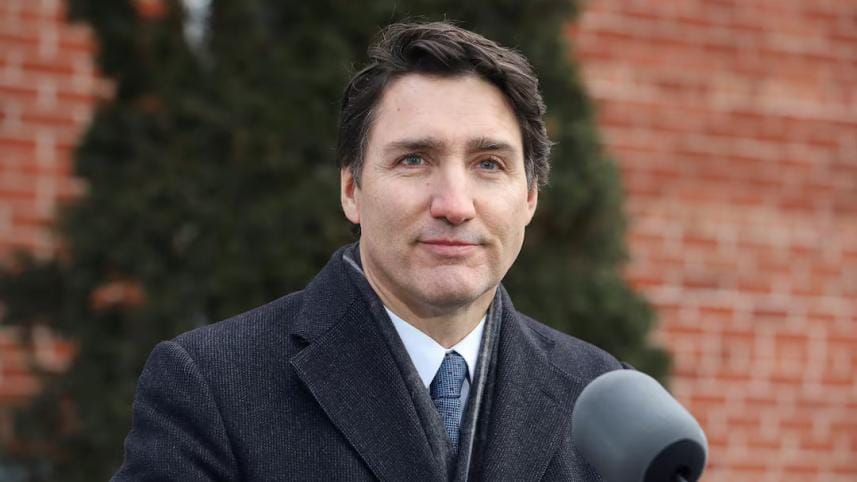Justin Trudeau’s fall from grace

Justin Trudeau was born on Christmas Day in 1971, the first child ever to arrive in the prime minister's official residence in Canada. This historic and joyful event coincided with my own arrival in the country just a few months earlier to attend the fall session at the University of Waterloo. December 25 itself is an unforgettable date, a day of celebration and renewal. The news of the prime minister's newborn son felt symbolic, an auspicious gift to the nation on a day celebrated for hope and joy. Little did anyone know that this child would grow up to lead Canada some four decades later, reviving a faltering Liberal Party and guiding it back to power with a charisma reminiscent of his father, Pierre Elliott Trudeau.
The elder Trudeau, with his cool demeanour and intellectual wit, embodied a different political era—one that I recall fondly from my university days. "Trudeaumania" had swept through Canada in the late 1960s, and Pierre's presence was ubiquitous, even gracing the cover of the Time magazine, which I received as part of my student subscription. During my four and a half years at Waterloo, Pierre Trudeau governed as prime minister. While his style was sometimes seen as detached, it was marked by a civility that seems almost foreign in today's polarised political landscape. He once described his opponent, Robert Stanfield of the Progressive Conservative Party, as "a good man who will make a good prime minister should his party win," or something along that line. Such graciousness in the face of political rivalry is rare today and stands as a testament to the gentler tenor of public discourse in that era, especially when contrasted with the shrill, Trumpian raucousness that dominates much of today's political landscape, or perhaps it is my nostalgia that imbues those times with a sense of magic and decorum.
Justin Trudeau's ascent to power brought back echoes of his father's legacy. He inspired Canadians with a message of hope, inclusivity, and progressivism, embodying the optimism that once defined his father's era. Yet, as is often the case in politics, the sheen of idealism can wear thin under the relentless pressures of governance and harsh realities of public scrutiny. Over time, Justin's leadership faced mounting challenges, both from within his party and the public, who got increasingly disillusioned with his policies and priorities. His eventual resignation seemed inevitable, a poignant reminder of the impermanence of political glory. Leaders often rise on tides of hope, but can be swept away by the same waves when public trust wanes.
Reflecting on Justin Trudeau's departure evokes a wave of personal nostalgia, transporting me back to that Christmas of 1971, when the snow seemed purer, the world kinder, and the future full of promise. Yet, with the passage of time, life has shown that even the purest snow eventually reveals the imperfections of the ground beneath. The idealism of youth gives way to the pragmatism of experience, and the pristine veneer of political or personal aspirations often cracks under the weight of reality.
Perhaps Justin, like his father, became ensnared in the political ugliness he once vowed to transcend. Or perhaps his departure is simply a reflection of the cyclical nature of politics, where leaders rise and fall, leaving behind legacies to be debated and dissected by those they once sought to inspire.
For me, Justin Trudeau's story is inseparably linked to my own memories of a transformative time. His birth marked a beginning—a moment of new possibilities for Canada and, in a way, for me as well, starting my graduate studies. His resignation, though distant from my present life, stirs reflections on the passage of time and the inexorable march of change. As I look back on that snow-covered campus in Waterloo, I realise that the purity of those days, though fleeting, left an indelible mark. Even amid the cracks and imperfections, there is beauty in the journey.
Dr Mushfiqur Rahman is a freelance contributor based in Melbourne, Australia.
Views expressed in this article are the author's own.
Follow The Daily Star Opinion on Facebook for the latest opinions, commentaries, and analyses by experts and professionals. To contribute your article or letter to The Daily Star Opinion, see our submission guidelines.




 For all latest news, follow The Daily Star's Google News channel.
For all latest news, follow The Daily Star's Google News channel. 
Comments